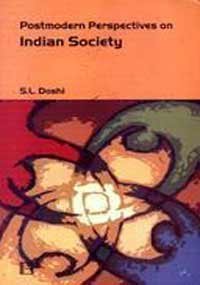Postmodern Perspectives On Indian Society
Postmodern Perspectives On Indian Society is backordered and will ship as soon as it is back in stock.
Couldn't load pickup availability
Genuine Products Guarantee
Genuine Products Guarantee
We guarantee 100% genuine products, and if proven otherwise, we will compensate you with 10 times the product's cost.
Delivery and Shipping
Delivery and Shipping
Products are generally ready for dispatch within 1 day and typically reach you in 3 to 5 days.
Book Details:
-
Author: S. L. Doshi
-
Binding: Paperback
-
Release Date: 01-12-2008
-
ISBN: 9788131601891
-
Dimensions: 8.4 x 5.4 x 0.6 inches
- Publiser: Rawat Publications
About the Book:
Postmodernity proposes the idea that our society is no longer governed by history or progress. A postmodern society is highly pluralistic, differentiated, and diverse. It rejects all grand narratives such as Marxism, Gandhism, and rationalism, which have been propagated as universal explanations of society.
In the West, particularly in the United States, modernity has transformed society into a "risk society." In India, however, the benefits of modernity have largely been cornered by high-caste Hindus, elites, political leaders, and higher classes. Meanwhile, the subalterns, marginalized groups, and disadvantaged masses have been left behind. Modernity, in this context, has led to the creation of religious, academic, and market fundamentalism, ushering in an age of dogma and societal damage, particularly affecting India's ethnicities.
In this book, the author applies the postmodern perspective to interpret contemporary Indian society. He examines traditional institutions like family, caste, village, culture, and religion through a postmodern lens. The author also explores the rise of fundamentalism, presenting a sociological analysis of the challenges India faces due to modernity. Doshi boldly argues that Indian society, in its current state, is a postmodern society.
The book is essential reading for sociology and anthropology teachers, researchers, NGOs, and students preparing for competitive exams.
Contents:
-
Postmodernity: What?
-
Theorizing Modernity and Postmodernity
-
Postmodernity: Themes and Perspectives
-
Postmodernity in Post-colonial, Post-feudal Indian Society
-
Fundamentalist World of Dogma and Danger
-
India’s Grand Narratives and Emerging Little Traditions
-
The Family: Traditional, Modern, and Postmodern
-
Interpreting Caste, Village Community, and Postmodernism
-
India’s Culture: Modernity and Postmodernity
-
Scheduled Tribes: On the Road to Modernity and Postmodernity
-
Globalization, Liberalization, and Market
About the Author:
S.L. Doshi has taught sociology at M.L. Sukhadia University, Udaipur, and South Gujarat University, Surat. He is also a Visiting Professor at M.D. University, Rohtak. Dr. Doshi has authored, co-authored, and edited more than two dozen books, including Modernity, Postmodernity and Neo-sociological Theory, Rural Sociology, Social Anthropology and Tribal Ethnicity, and Class and Integration.





